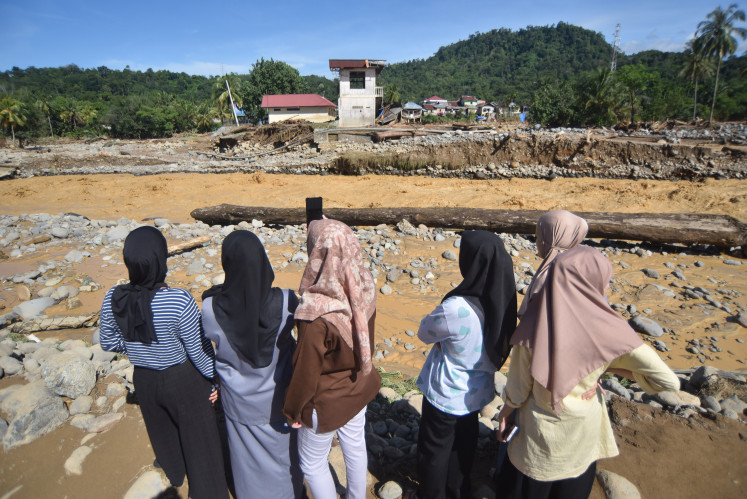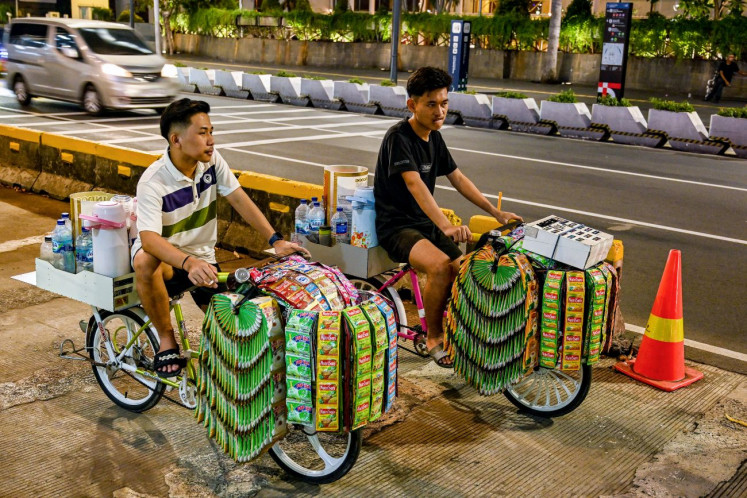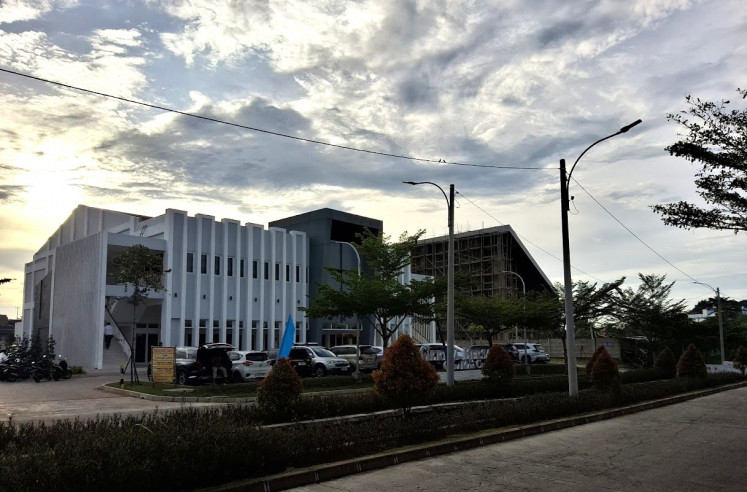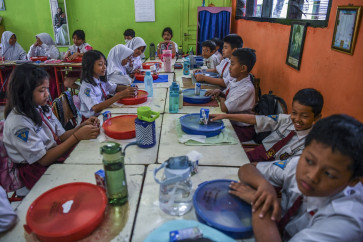Popular Reads
Top Results
Can't find what you're looking for?
View all search resultsPopular Reads
Top Results
Can't find what you're looking for?
View all search resultsBuilding the future: Pivoting toward human capital development
The focus on human capital is a direct response to the Golden Indonesia 2045 vision, which aims to help Indonesia escape the middle-income trap and become a developed country.
Change text size
Gift Premium Articles
to Anyone
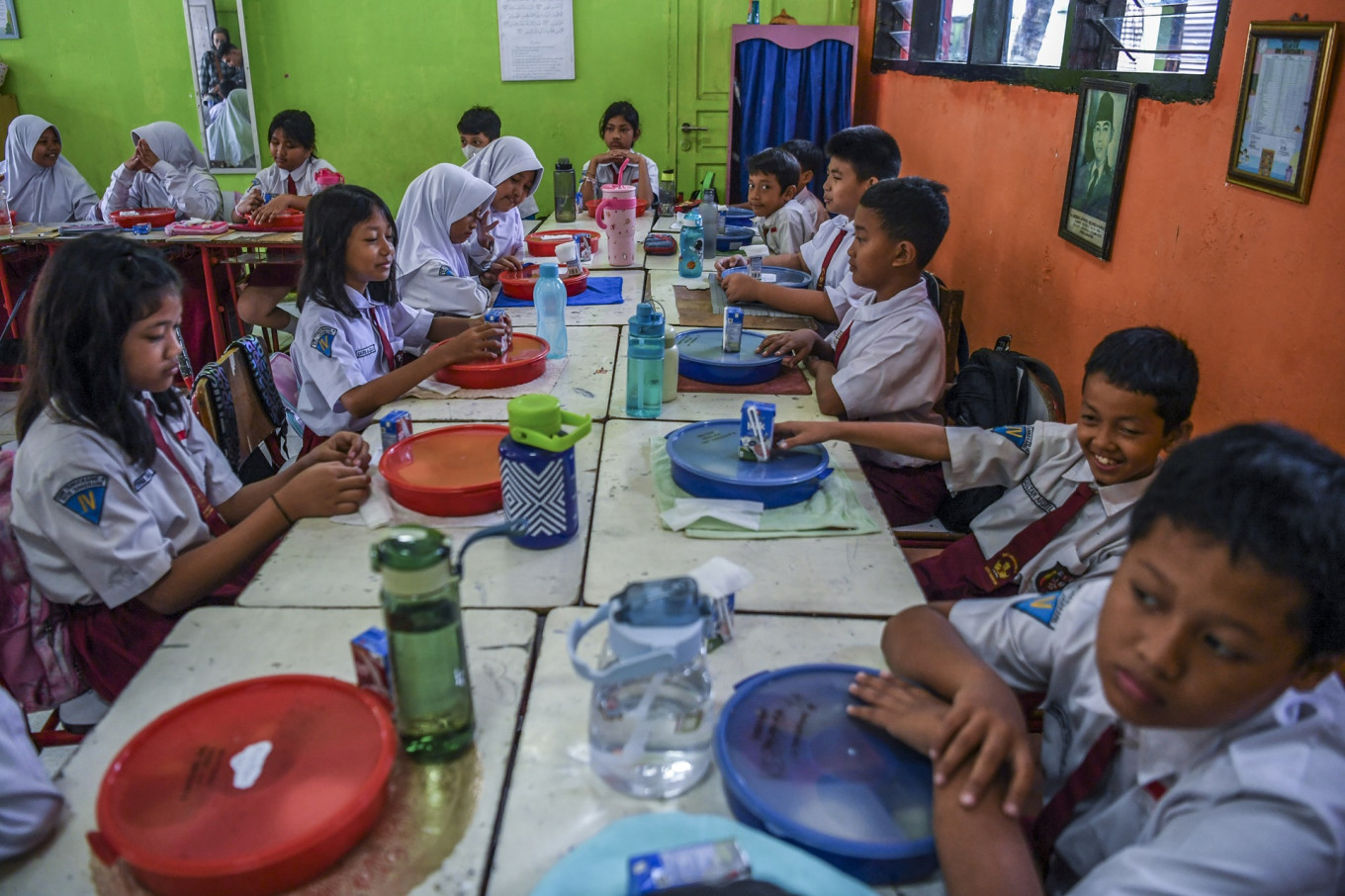 Students eat lunch on Aug. 5, 2024, during the trial of the free nutrition meals program at the SDN 4 Tangerang state elementary school in Tangerang, Banten. The newly established National Nutrition Agency will oversee the implementation of the program, which was a central campaign promise of president-elect Prabowo Subianto. (Antara/Galih Pradipta )
Students eat lunch on Aug. 5, 2024, during the trial of the free nutrition meals program at the SDN 4 Tangerang state elementary school in Tangerang, Banten. The newly established National Nutrition Agency will oversee the implementation of the program, which was a central campaign promise of president-elect Prabowo Subianto. (Antara/Galih Pradipta )
W
hile nation prepares for a government transition in October, it celebrates the current administration's achievements while looking ahead to new opportunities.
The focus on accelerating infrastructure development has been crucial in Indonesia’s journey toward greater prosperity. Infrastructure development expands the necessary space and capacity, laying a stronger foundation to support and sustain higher levels of economic growth.
As the baton is passed to the next government, the emphasis is expected to further expand from building roads and bridges to nurturing the most critical resource of all: human capital. The state budget will play a pivotal role in harmonizing these efforts, ensuring the continuity of programs and priorities that will drive Indonesia’s long-term success.
The concept of human capital development is not new to Indonesia. During the 1980s oil boom, the government invested heavily in education through the SD Inpres program, which saw the construction of thousands of state primary schools and the improvement of teaching methods. These efforts contributed to the robust economic growth of over 6 percent per year in the early 1990s, supported in part by improvements in human capital.
The implementation of 12 years (6 years of elementary school, 3 years of junior high school and 3 years of senior high school) of compulsory education has been central to Indonesia's human capital development. Achieving this goal requires addressing significant disparities between rural and urban areas.
Rural schools often suffer from inadequate infrastructure, a shortage of qualified teachers and transportation challenges making daily attendance difficult. In contrast, urban schools benefit from better facilities, more experienced teachers and access to advanced learning tools, resulting in better educational outcomes.
To close these gaps, the state budget prioritizes improving educational infrastructure in rural areas, including building and renovating schools and providing necessary learning tools. Additionally, incentivizing teachers to work in remote areas through housing, allowances and career opportunities is crucial. Scholarships and financial support for low-income rural students are also essential to reduce dropout rates and ensure educational continuity.





